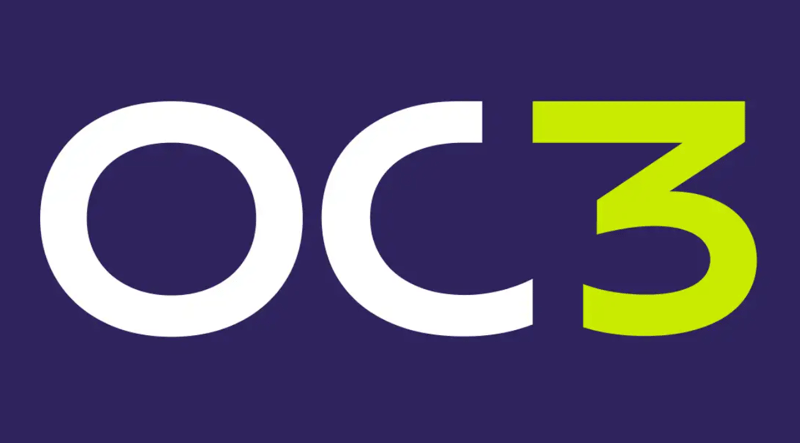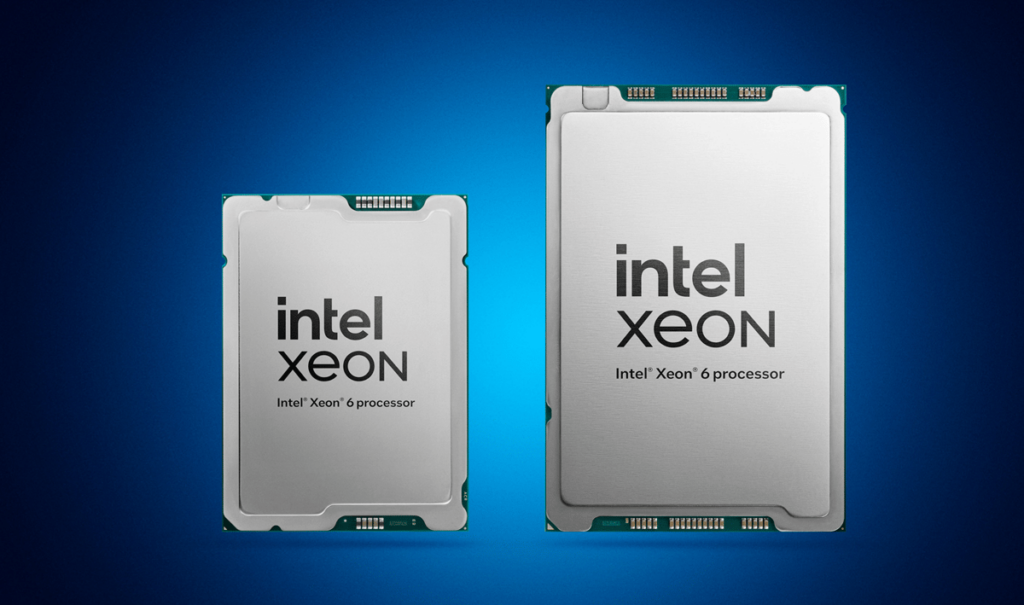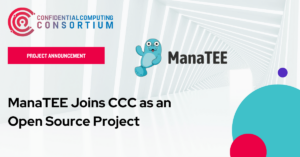March’s Issue:
- From the Executive Director
- NEW! Outreach: Submit your talks & booth demos!
- Upcoming Events
- From the TAC
- Recent News
Welcome to our latest newsletter! This month’s newsletter covers opportunities for members to staff CCC conference booths, upcoming CFP deadlines, newly approved SIG on Trustworthy Workload Identity, and recent developments in Confidential Computing, including ManaTEE and container security insights.
From the Executive Director (ED)
As conference season continues, it’s worth a reminder that whenever we (the CCC) have a booth at a conference or exhibition, that’s an opportunity for our members and open source projects to attend and staff that booth. Usually, we get several free passes for booth staff, which means that all you need to do is volunteer (via the Outreach group) and turn up! You’re welcome to bring your own swag and marketing materials, and while the main branding and messaging focus is, of course, on the CCC, we believe that one of the great benefits of membership is being able to promote not just the consortium, but also your own company or project’s work. Upcoming events where we’ll have a booth include the RSA Conference and Confidential Computing Summit, so if you’re interested, please get in touch.
Outreach
The deadline is just around the corner! The Confidential Computing Consortium is excited to be sponsoring several upcoming events. As a valued member, you have the opportunity to share your ideas through CCC sponsored speaker sessions. We’re currently accepting submissions for speaker sessions and booth presentations. Whether you have a story to share, a project to demo, or an idea to inspire others, we encourage you to submit a proposal. Don’t miss out and check out the list of opportunities below!
- Confidential Computing Summit | CCC Breakout Session Call for Proposal (Due March 31)
- CFP Confidential Computing Mini Summit- OSS NA (Due March 31)
- RSAC Booth Demo Submission (April 28 – May 1)
Upcoming Events
- RSA Conference April 28-May 1, 2025
- Confidential Computing Summit June 17-18, 2025
- Confidential Computing Mini Summit June 26, 2025
- AI Infra Summit September 9-11, 2025
- OSFF October 21-22, 2025
From the TAC
Last month we talked about emerging interest across the Consortium to advance Trustworthy Workload Identity. In a nutshell, Confidential Computing can provide cryptographic evidence about the integrity and identity of a workload. However there are ease of use gaps in our common tooling and gaps in the ecosystem’s recognition of these capabilities.

I’m happy to say that a charter quickly came together and that across the TAC there was clear agreement and possibly more importantly commitment to contribute to the goals of the charter. We voted to approve TWI as the newest SIG. You can find the charter here.
We are still standing up some infrastructure for it including a mailing list. Meanwhile you can always check the CCC calendar to find where and when meetings are taking place. For now TWI contributors will meet Tuesdays. View the calendar here.
Recent News
- At FOSDEM 2025, Dayeol Lee introduced ManaTEE, an open source framework enabling secure, privacy-preserving data analytics. By leveraging Privacy-Enhancing Techniques (PETs) and Trusted Execution Environments (TEEs), ManaTEE empowers researchers to analyze sensitive data with confidence. Now part of the Confidential Computing Consortium, ManaTEE is shaping the future of secure data collaboration. Read the blog to learn more about the framework, its use cases, and how you can contribute:

- Does Confidential Computing work with containers? The short answer: Yes. But the real question is how it works and what level of security isolation fits your needs. In this blog, Dan Middleton breaks down different interpretations of “containers” and explores four key isolation patterns for protecting containerized applications with Confidential Computing. Read the blog.

Subscribe to our newsletter!




 The CCC has grown tremendously with lots of activities this year. Thanks to all the CCC community members for their participation and collaboration. We could not do what we do without our members’ involvement.
The CCC has grown tremendously with lots of activities this year. Thanks to all the CCC community members for their participation and collaboration. We could not do what we do without our members’ involvement.  November was a busy month for the CCC and we’ve managed a number of important tasks. The first is approval of a budget for 2025 and the second is the election of new chairs and vice chairs to our various committees.
November was a busy month for the CCC and we’ve managed a number of important tasks. The first is approval of a budget for 2025 and the second is the election of new chairs and vice chairs to our various committees. We have for the last couple years organized our work around Projects, Ecosystem, and Community.
We have for the last couple years organized our work around Projects, Ecosystem, and Community.










-1.png?width=1140&upscale=true&name=CCSummiit%20CCC%20Kit%20Twitter%20(1)-1.png)